Reflecting on a Chicago Burial Service for the Indigent
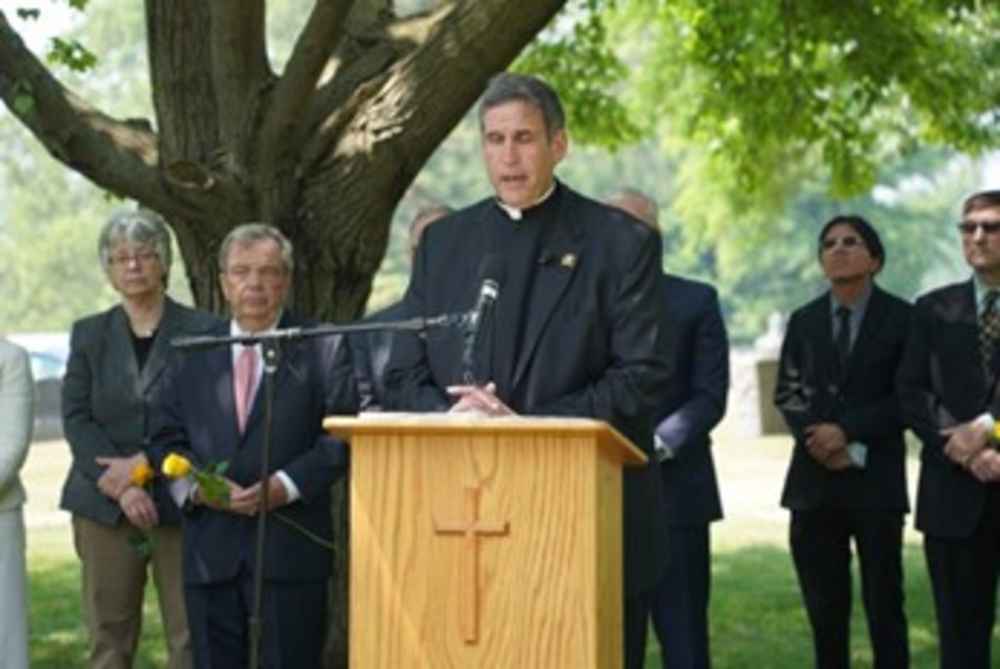
Father Larry Sullivan prays for these lost members of the Chicago community
In our society, there are individuals who face the harsh reality of poverty, enduring its burdens until their final breath. When these individuals pass away without the means to afford a proper burial, it is essential that we recognize the significance of providing them with a dignified farewell. Such acts of compassion exemplify the essence of our mission to serve our Lords, the sick and poor, embodying the values of empathy, respect, and solidarity.
Recently, Members of the Priory in the USA joined Chicago Members of the Order of Malta at a burial service for indigent residents of Cook County. This annual service of mercy led by the Archdiocese of Chicago saw 369 people’s earthly remains buried at Mount Olivet Cemetery on the city’s South Side. As Ed Rutledge, MStJ, said, “Nobody deserves to be thrown away, so it was an emotional and beautiful part of our work to ensure that these souls were not simply discarded but laid to rest with the dignity we all deserve.” These people represented the poor and sick of Cook County, the homeless and those whose bodies were unclaimed along with stillborn and miscarried babies. The service was led by Fr. Larry Sullivan, who oversees Catholic Cemeteries for the Archdiocese. He noted, “We do the full rite of Christian burial. Everyone has the right to be mourned and prayed for.”
As Members of our Order, we know we are called—as are all of God’s children—to care for the Lord’s poor and suffering.
Many present were especially touched by the story of an unidentified newborn baby whose body was left outside a firehouse in January 2022. Those who prepared the baby’s body for burial gave him a name, Joseph Evangelos. He was the first interment of the afternoon and the Members of the Order of St John and Order of Malta stayed until all had been given a proper burial. They offered up silent prayers at these gravesides in a partnership that goes back to 2012. Every person, regardless of their socioeconomic status, deserves to be treated with dignity and honor, even in death. A burial service for the indigent acknowledges the intrinsic worth of the departed soul. “Our Lords, the sick and the poor may or may not have died alone, but they certainly were not buried alone,” said Ed Rutledge. “I am so gladto have been a part of this important work of mercy, and would encourage Members to attend ceremonies like this. I can promise that the experience will stay with you long after the service has ended.”
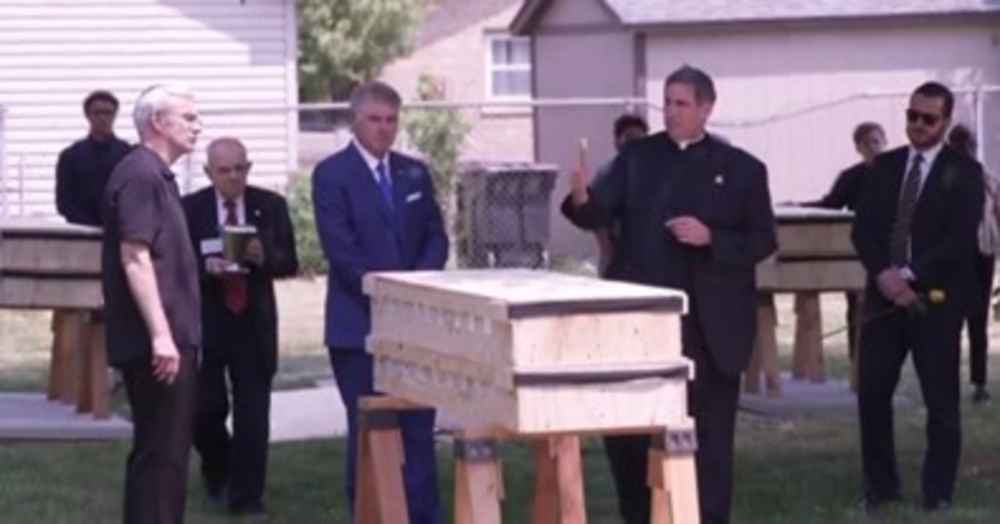
Ed Rutledge, MStJ (center) helps to prepare one of the coffins for burial
“...whatever you did for one of the least of these, you did for me.” Matthew 25:40
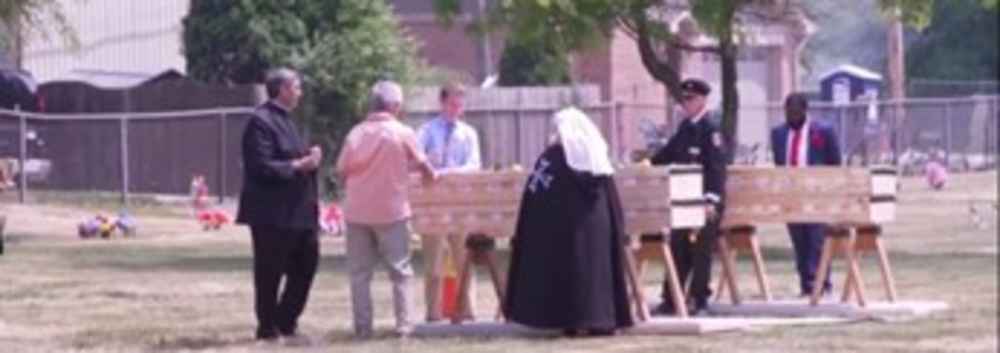
Suzanne Nelson, DM, and Ted Makarewicz, KMOb, assist Fr Larry Sullivan in preparing a coffin for burial
I suspect most of you reading know the above quote from a parabolic teaching of our Lord about sheep and goats—those who do, and those who do not respond to the needs of others. I have probably used it before in my Sub-Prelate column. But I have been pondering a bit on the first three words of this verse... “whatever you did...” and the last four, “... you did for me...”
As Members of our Order, we know we are called—as are all of God’s children—to care for the Lord’s poor and suffering. Sometimes that is done in big and noticeable ways, but I would wager a guess that a lot of what we do for this cause is not widely recognized—and truth be known, the lasting and enduring impact of those with a heart set on service.
My home Church generously spared me some sabbatical time this past summer. As we sometimes do, my wife and I stayed in the Cotswolds. Over the years, we have been blessed to accumulate some friendships in that region of the UK, among them, an elderly woman by the name of “Florence,” (“Flip” for short!). We first met her back in 2018, but on the trip this summer, when we sought to pay a visit—we learned that she was recovering from a recent downturn in her health. A mutual friend told us where to find her—in a local Order of St. John Convalescent Home, in Stow on the Wold. I confess, I had no idea of our Order’s connection to the care center, so during the sabbatical, I made it a point to visit not only this convalescent home, but another in Bourton on the Water. My wife and I met with staff and administrators at both centers and, as with all things connected to our Order’s mission, found those serving these remarkable places to offer care of the highest caliber.
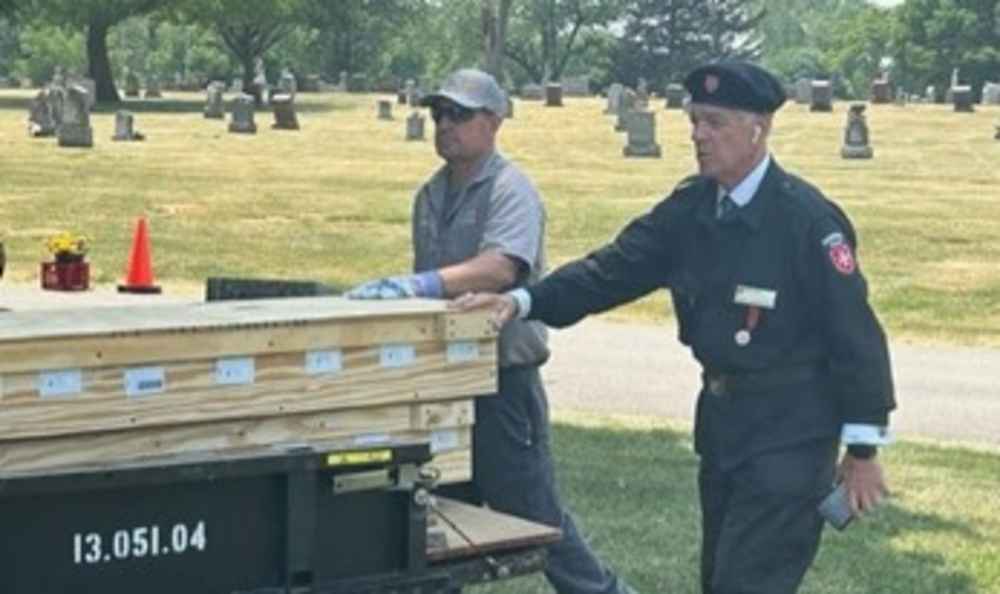
While our Order or Priory no longer have a direct connection to these homes, the vision for their work is the direct fruit of their early sponsorship by the Sovereign and Hospitaller Order of Malta and The Venerable Order of St John of Jerusalem, under the banner of the Order of St. John Charitable Trust, which was established in 1991. A year later, the Trust took over running 16 such homes, and at present they oversee the operations of nearly 60 such homes providing reputable trusted care, support and housing to people across Gloucestershire, Lincolnshire, Oxfordshire, Suffolk, West Sussex, and Wiltshire. The Trust is a 100% not-for-profit outfit.
The homes specifically offer services to the elderly which range from specialized dementia care to intermediate, respite, day care and expert nursing. The Trust now employs approximately 4,800 staff and assists more than 3,500 residents. In short, it is a massive operation.
What strikes me about all of this is that while the OSJCT (Order of St. John Charitable Trust) is not a beneficiary of the direct oversight of our Order, or even our annual Oblations—its work is—nonetheless, yet another expression of the values we hold dear and seek to promote.
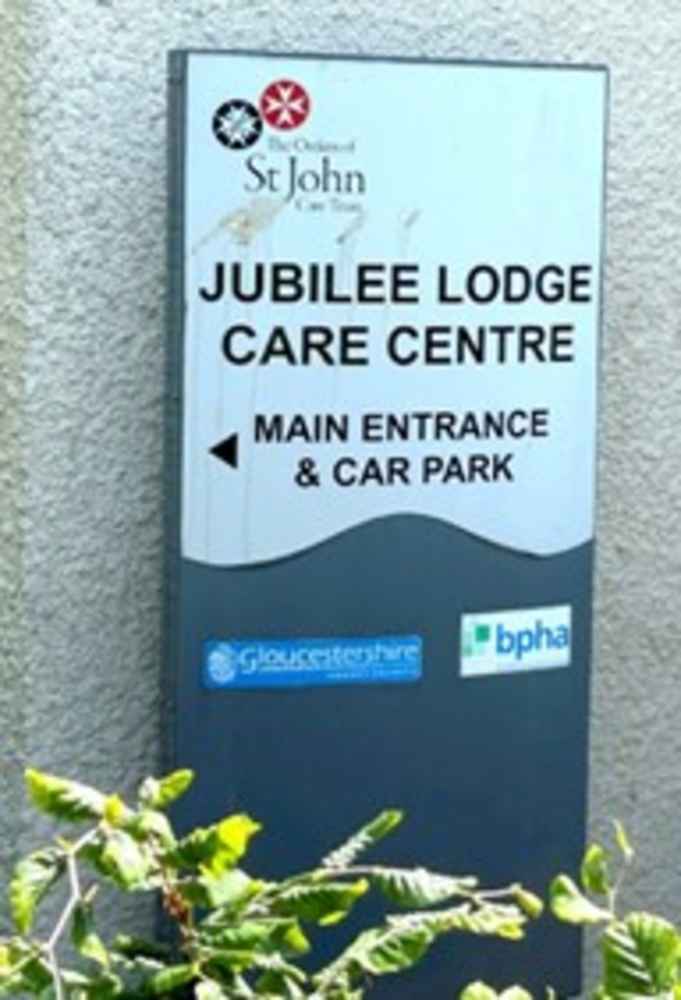
And my hunch is, when the Order of Malta began its work in the Holy Land in 1099 and when Queen Victoria granted our Priory its Royal Charter in 1888, there was no strategic plan to put into place these convalescent homes. And yet, someone, somewhere at some time along the way—inspired by the values we cherish birthed this remarkable arm of care and outreach. Whomever that person was, it may—at the time, might have seemed like a little thing, but it has become quite a big thing. As John Chrysostom once wrote, “Faithfulness in little things—is a big thing!” Indeed, invisible to the naked eye, but they leave their mark behind. I like what the young adult author Judy Blume once penned, “Our fingerprints don’t fade from the lives we touch.”
I wonder—I really do—what small thing our Lord may be calling on you to do today to touch the life of another? It does not have to be a big thing at all—a smile to a passerby, a phone call to a lonely friend, a visit to an ailing neighbor, an hour or so spent at the Food Bank shelving donations or the Clothes Closet, sorting clothes. It may be a vision the Lord has put into your mind to prompt your worshipping community, your local school or city council to tackle some deed needed in your community. The late Bishop of Alabama, Bill Stough, used to say “Listen to your gut what you feel there is often the Holy Spirit.” Whatever your gut is telling you to do .... don’t ignore it... do it.
When I connect these dots I am putting before you, I cannot help but think that what is going on here is exactly what our Lord was pointing to in the parable of the sheep and goats when He said, “whatever you do... you did for me...”
This is in some ways, just another set of fingerprints left by our work. Fingerprints are interesting things—they are often invisible to the naked eye, but they leave their mark behind. I like what the young adult author Judy Blume once penned,“Our fingerprints don’t fade from the lives we touch.” I wonder—I really do—what small thing our Lord may be calling on you to do today to touch the life of another? It does not have to be a big thing at all—a smile to a passerby, a phone call to a lonely friend, a visit to an ailing neighbor, an hour or so spent at the Food Bank shelving donations or the Clothes Closet, sorting clothes. It may be a vision the Lord has put into your mind to prompt your worshipping community, your local school or city council to tackle some deed needed in your community. The late Bishop of Alabama, Bill Stough, used to say “Listen to your gut.... what you feel there is often the Holy Spirit.” Whatever your gut is telling you to do .... don’t ignore it...do it. For indeed... “whatever you do...,” you are doing for the One Who created you... and would there be any better use of your time, talent or treasure than that?
